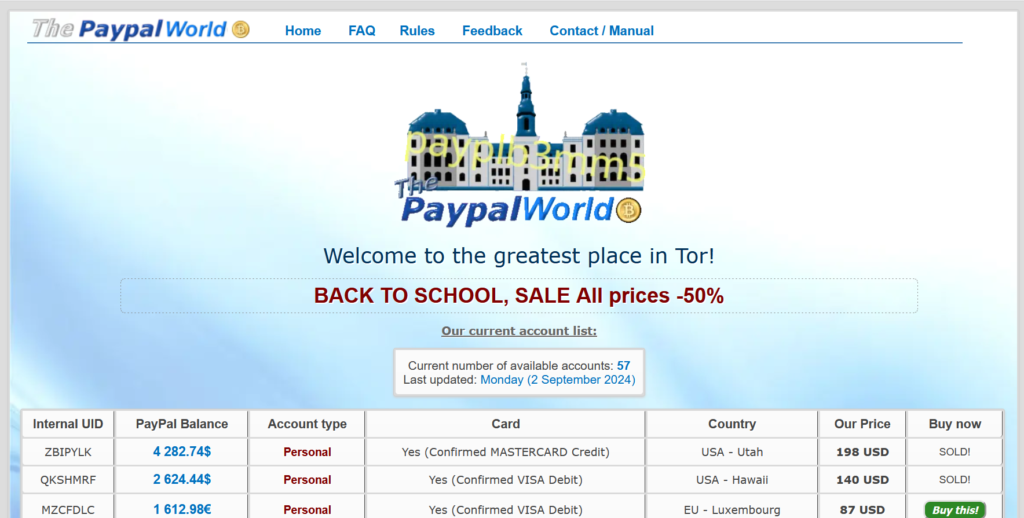Table of Contents
TogglePaypal World – TOR Scam Report (1)
Onion Link: http://n6qisfgjauj365pxccpr5vizmtb5iavqaug7m7e4ewkxuygk5iim6yyd.onion
Scam Report Date: 2024/09/01
Client Scam Report Breakdown
Original Report Summary:
The original scam report describes a situation in which a client purchased a PayPal account for $28 using Bitcoin (BTC) on a dark web marketplace. After completing the transaction, the client did not receive the purchased account and attempts to contact the seller via email went unanswered. The client expressed feeling scammed, noting that they lost their funds and did not receive the goods they paid for. The report highlights the challenges and risks associated with transactions in unregulated environments, especially when dealing with anonymous sellers who can easily disappear without a trace. The client’s inability to capture screenshots during the transaction phase but having a transaction ID and a photo of the receiving address further complicates the situation, making it difficult to pursue any form of restitution.
Defining Key Terminology
Several key terms are essential to fully understanding the reported scam. PayPal account refers to an online account associated with the PayPal platform, often used for making and receiving payments electronically. In this context, the account was likely a compromised or hacked account being resold illegally. Bitcoin (BTC) is a decentralized digital currency that enables peer-to-peer transactions without the need for a central authority like a bank. Transaction ID is a unique identifier associated with a specific cryptocurrency transaction on the blockchain, which records all details of the transaction. Receiving address refers to the Bitcoin wallet address where the client’s payment was sent. The use of terms like scammed indicates that the client believes they were defrauded, losing their money without receiving the promised account in return.
Analysis and Conclusion
The reported experience reflects the inherent risks involved in conducting transactions on the dark web, especially when using cryptocurrency as the payment method. The anonymity provided by Bitcoin, while beneficial for privacy, also makes it easier for scammers to operate without accountability. In this case, the client’s lack of screenshots and limited documentation (only having a transaction ID and a photo of the receiving address) further weakens their position in seeking redress. The seller’s failure to respond to emails and the unfulfilled delivery of the purchased account are clear indicators of fraudulent activity. This situation serves as a cautionary tale for others considering similar transactions, emphasizing the need for caution, thorough research, and consideration of the risks before engaging in such dealings. The client’s report underscores the difficulties of recovering funds or obtaining justice in environments where anonymity and a lack of regulation are prevalent.






